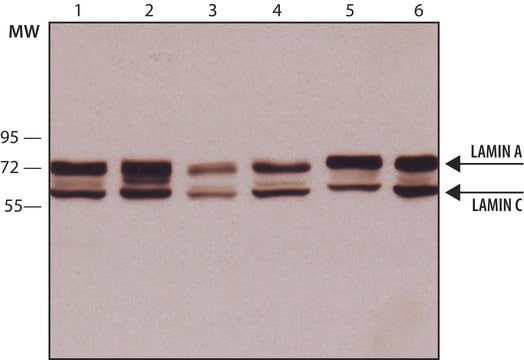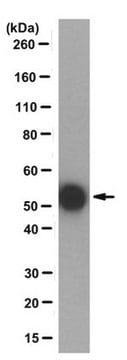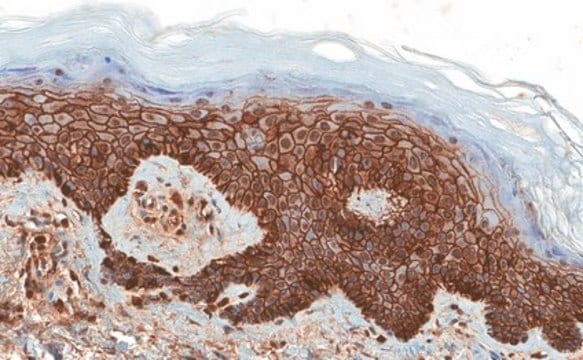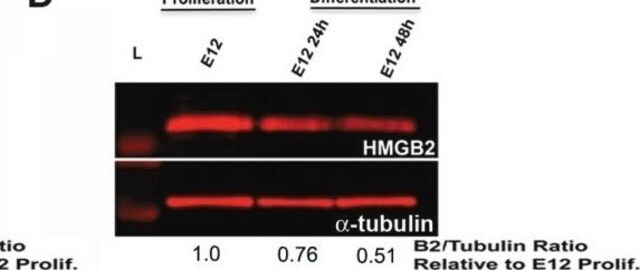MABT330
Anti-Lamin A (mature) Antibody, clone 4A4-A4
clone 4A4-A4, from mouse
Synonym(s):
Prelamin-A/C, Lamin-A/C, 70 kDa lamin, Renal carcinoma antigen NY-REN-32
About This Item
Recommended Products
biological source
mouse
Quality Level
antibody form
purified immunoglobulin
antibody product type
primary antibodies
clone
4A4-A4, monoclonal
species reactivity
human
technique(s)
immunocytochemistry: suitable
immunoprecipitation (IP): suitable
western blot: suitable
isotype
IgG1κ
NCBI accession no.
UniProt accession no.
shipped in
wet ice
target post-translational modification
unmodified
Gene Information
human ... LMNA(4000)
General description
Immunogen
Application
Immunocytochemistry Analysis: A representative lot detected Lamin A (mature) in wild type mouse fibroblasts cells.
Western Blotting Analysis: 0.5 µg/mL from a representative lot detected Lamin A (mature) in 10 µg of A431 and THP-1 cell lysate.
Western Blotting Analysis: A representative lot detected Lamin A (mature) in EDMD and FPLD fibroblasts (Roblek, M., et al. (2010). PLOS ONE. 5(5):e10604).
Western Blotting Analysis: A 1:100 dilution from a representative lot detected Lamin A (mature) in pre-lamin A and Lamin A (mature).
Cell Structure
Adhesion (CAMs)
Quality
Western Blotting Analysis: 0.5 µg/mL of this antibody detected Lamin A (mature) in 10 µg of Jurkat cell lysate.
Target description
Physical form
Storage and Stability
Other Notes
Disclaimer
Not finding the right product?
Try our Product Selector Tool.
recommended
Storage Class Code
12 - Non Combustible Liquids
WGK
WGK 1
Flash Point(F)
Not applicable
Flash Point(C)
Not applicable
Certificates of Analysis (COA)
Search for Certificates of Analysis (COA) by entering the products Lot/Batch Number. Lot and Batch Numbers can be found on a product’s label following the words ‘Lot’ or ‘Batch’.
Already Own This Product?
Find documentation for the products that you have recently purchased in the Document Library.
Our team of scientists has experience in all areas of research including Life Science, Material Science, Chemical Synthesis, Chromatography, Analytical and many others.
Contact Technical Service








